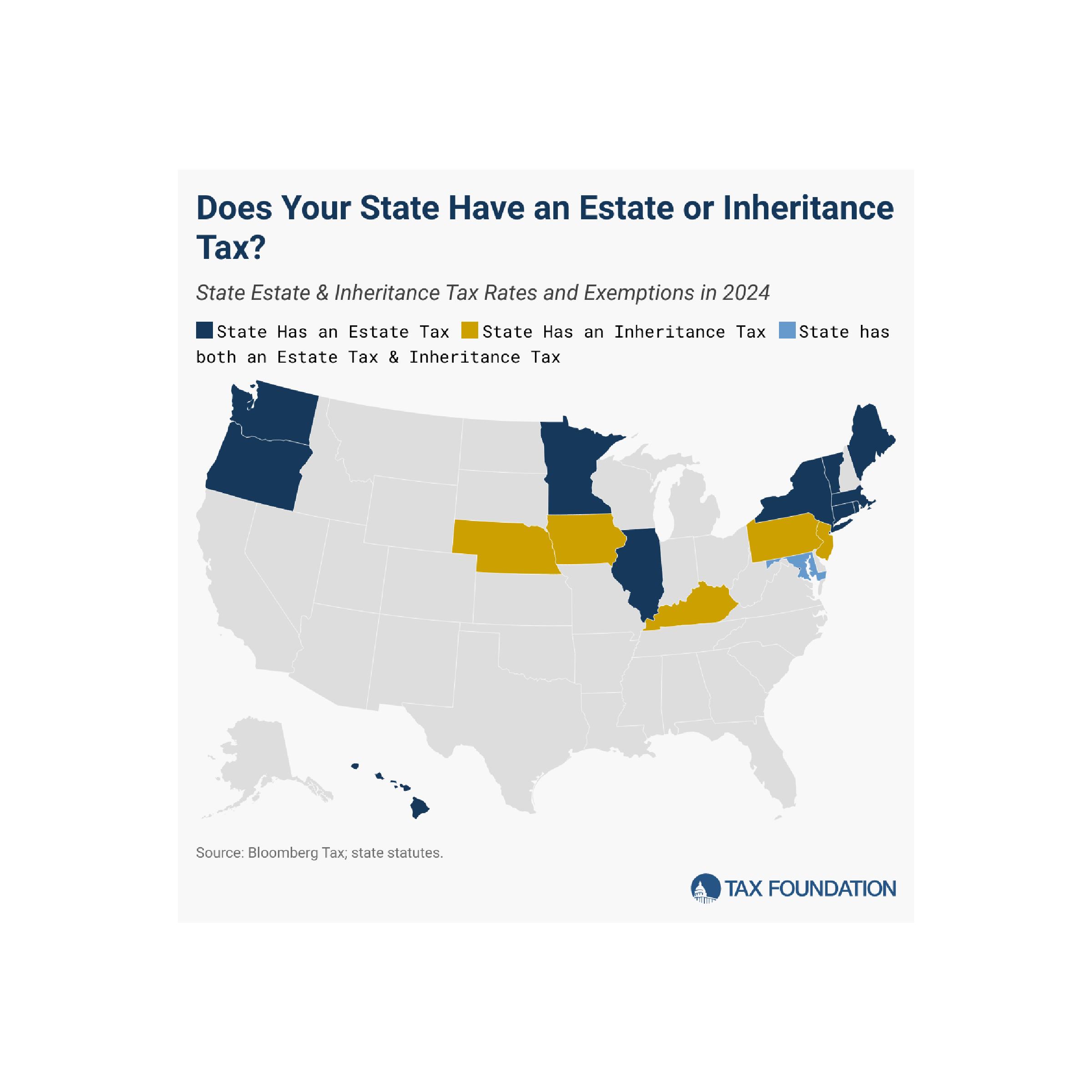THE DIFFERENCE BETWEEN ESTATE, INHERITANCE, & DEATH TAXES

April 10, 2025
There has been considerable public and private discussion about estate, inheritance, and death taxes. Our COO and estate planning strategist, Avatus Stone, explains what you need to know:
1. Estate tax and inheritance tax are different.
Estate tax is based on the value of a person’s taxable estate or assets at the time of their death. It is a tax on the transfer of wealth, paid by the estate, before assets are passed on to heirs. An estate may be subject to the federal estate tax, and, depending on where the deceased person resided, a state estate tax.
Inheritance taxes are based on the value of inherited assets and are paid by the beneficiary. Only six states impose an inheritance tax. There is no federal inheritance tax.
Twelve states plus the District of Columbia impose estate taxes, while only six states impost an inheritance tax. Notably, Maryland is the only state the imposes both, making its tax landscape especially complex for its residents and their heirs.
2. There is no death tax.
“Death tax” is a term that some public officials have used when they mean estate tax. Calling it a “death tax” is a purposeful way of garnering public support to eliminate a tax that affects fewer than 1% of estates.
3. The laws governing estate tax are likely to change.
A new law has been proposed to repeal the federal estate tax and generation-skipping tax. It would also create a “permanent” gift tax exemption and reduce the gift tax rate. We wrote about this in more detail in the JM LAW blog post about new laws that may affect your estate plan.
What this means for you: if you’re considering gifting assets, now is the time to schedule a consultation.
The distinction between estate and inheritance taxes is important, and Maryland stands out as the only state that imposes both taxes on wealth transfers. If you live in Maryland or own assets there, knowing exactly how these two taxes impact you is key to protecting your legacy. See our blog post that breaks down Maryland’s unique estate and inheritance tax situation and gives you actionable strategies to make sure your wealth ends up exactly where you want it.
This post was created by Avatus Stone, COO & estate planning strategist at JM LAW, PLLC.
©2022 JM LAW, PLLC. All rights reserved
site credits : branding & website | photography
8180 Greensboro Drive, Suite 1100 | McLean, Virginia 22102 | (703) 956-5738
Disclaimer: Materials prepared by JM LAW, PLLC are for general informational purposes only. Educational material does not create an attorney-client relationship and is not an offer to represent you. You should not act or refrain from acting based on information provided.